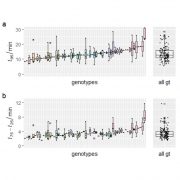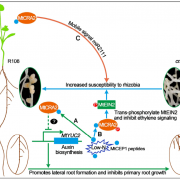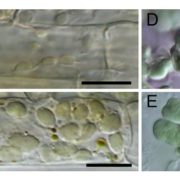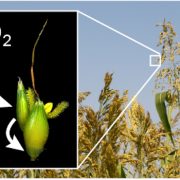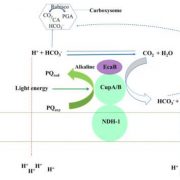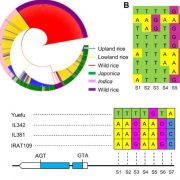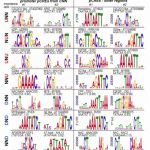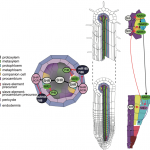Mars1 kinase signaling in the chloroplast unfolded protein response (eLIFE)
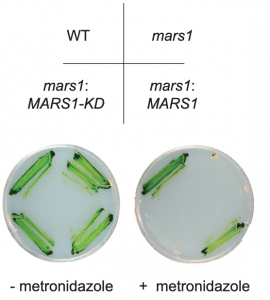 In stressful situations, such as high light and nutrient scarcity, the chloroplast may experience increased proteotoxicity due to a surge in damaging reactive oxygen species. In response, a signal is sent to the nucleus to increase production of many proteins, including proteases and chaperones to help mitigate the damage. This damage control pathway has been termed the chloroplast unfolded protein response (cpUPR) and is thought to play a key role in regulating plastid protein homeostasis, but the molecular basis for cpUPR signaling has been largely unknown. To understand how the cpUPR turns on, Perlaza et al. set up a genetic screen in the green alga Chlamydomonas based on conditional cpUPR activation combined with fluorescent read-out of a nuclear-encoded reporter gene. Through this screen they identified Mars1, a kinase specifically required for communication between the chloroplast and nucleus in response to proteotoxic stress. Break-down of plastid-to-nucleus communication in the mars1 mutant caused a failure to activate the cpUPR transcriptional response and severely reduced growth under high light intensity. Conversely, Mars1 overexpression protected cells against normally growth-inhibitory conditions, suggesting that cpUPR engineering could be a viable strategy to increase plant stress tolerance. (Summary by Frej Tulin) eLIFE 10.7554/eLife.49577
In stressful situations, such as high light and nutrient scarcity, the chloroplast may experience increased proteotoxicity due to a surge in damaging reactive oxygen species. In response, a signal is sent to the nucleus to increase production of many proteins, including proteases and chaperones to help mitigate the damage. This damage control pathway has been termed the chloroplast unfolded protein response (cpUPR) and is thought to play a key role in regulating plastid protein homeostasis, but the molecular basis for cpUPR signaling has been largely unknown. To understand how the cpUPR turns on, Perlaza et al. set up a genetic screen in the green alga Chlamydomonas based on conditional cpUPR activation combined with fluorescent read-out of a nuclear-encoded reporter gene. Through this screen they identified Mars1, a kinase specifically required for communication between the chloroplast and nucleus in response to proteotoxic stress. Break-down of plastid-to-nucleus communication in the mars1 mutant caused a failure to activate the cpUPR transcriptional response and severely reduced growth under high light intensity. Conversely, Mars1 overexpression protected cells against normally growth-inhibitory conditions, suggesting that cpUPR engineering could be a viable strategy to increase plant stress tolerance. (Summary by Frej Tulin) eLIFE 10.7554/eLife.49577
[altmetric doi=”10.7554/eLife.49577″ details=”right” float=”right”]


